Interview with Javier Reverte, Journalist and Writer of Travel literatureMiscellaneous
Javier Reverte was born in Madrid and studied Philosophy and Journalism. He worked as a journalist for almost 30 years, working as a press correspondent in London, Paris and Lisbon and as correspondent in numerous countries around the world. He has also written articles, has been a political reporter, interviewer, editorialist, editor in chief, and reporter for the programme "En Portada" on Spanish national TV and assistant manager of the newspaper "Pueblo" that no longer exists.
His real name is Javier Martínez Reverte and he is the author of various travel books which have been very well received by the Spanish readers : “Trilogía de África”(“El sueño de África”, “Vagabundo en África”y “Los caminos perdidos de África”), “Corazón de Ulíses”, “Billete de Ida”(anthology of travel reports), “El río de la desolación”(a trip through the Amazon basin) , “La aventura de viajar”(memoirs of various trips throughout his life), “El río de la luz”(a trip through Alaska and Canada) and the recently published “En mares salvajes”(a trip through the Arctic).
He has also published successful novels, amongst others: “Trilogía de Centroamérica”(“Los dioses debajo de la lluvia”, “El aroma del copal” y “El hombre de la guerra”), “Todos los sueños del mundo”, “La noche detenida”, “El médico de Ifni”, “Venga a nosotros tu reino”y “Barrio Cero”. Three years ago two novels published formerly saw the light again: “Lord Paco”and “Campos de fresas para siempre”.
He is the author of a biography: “Dios, el Diablo y la Aventura” about a priest from Madrid, Pedro Paez, and the first European to see the source of the Blue Nile in Ethiopia.
He has also cultivated poetry. His book “Trazas de polizón”, published in 2005 brings together three collections of poems. In 2011, he published the book “Poemas Africanos”.
His last work is “Colinas que arden, lagos de fuego”, where travel experiences from his beloved Africa at Kenya territories, Tanzania and Zambia are compiled.
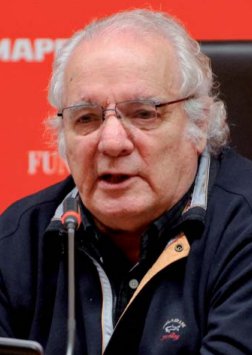

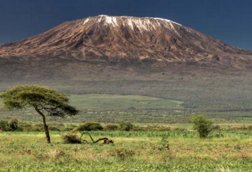
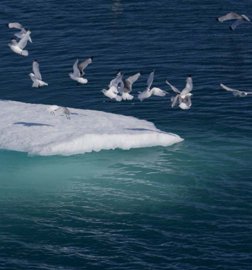
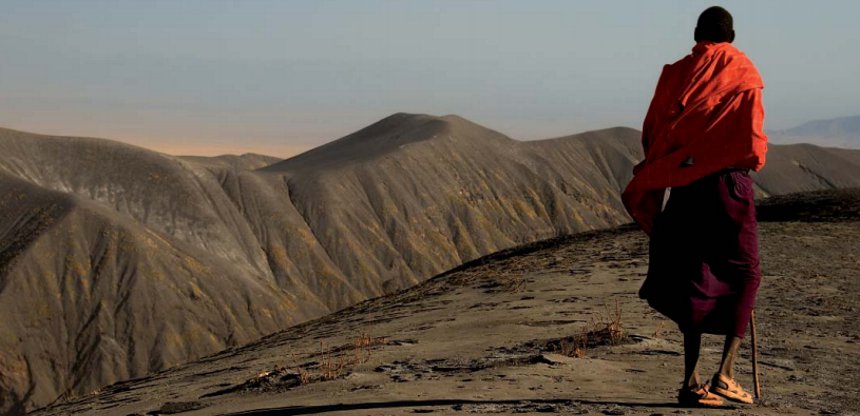
“Tourism helps deprived population to grow”
Javier Reverte is a lucky man because he has turned his passion into a way of life. Africa gave him the passport to success and nowadays, his travel literature has an excellent reception. His books accompany those who want to replicate his particular way of searching for adventure and revive history, even though it is done from the coach. He continues looking for new experiences but it was a long time ago since he decided to take a travel insurance policy inside his backpack.
You enjoyed autumn in the city of skyscrapers. What do you expect to find in New York that you have not found on your previous trips?
I do not look for anything special in New York, just to be there and to live the city. When I was working as a journalist, I had the opportunity on three occasions to come here but each time I was unable to. So this is something I have always wanted to do. I do not want to die without having lived in what is, for now, the capital of the western or first world. I might even write something about my experience. It is a truly exciting city, full of energy.
What sensations do you feel when every day, in the cradle of democracy, Greece, there are scenes of protests from the population and when old Europe is encountering serious difficulties to maintain political and economic cohesion?
In this case, crisis is very painful because I really love Greece for its past and present and I am seriously worried about the current situation, because of the way it will negatively influence the future of many people. How can we pass on to our children a society like this? However, I believe the crisis may clear many false values we have upheld and which made us live very comfortably. We must recover the deeper ethical values and condemn the usury system we live in once and for all.
In what way did your Greek colleagues Herodotus, with his account of the Greco-Persian wars, and Thucydides, with his description of the Peloponnesian War, influence your work as a journalist when you were in the midst of the Balkan war or in Ulster ?
The figure of the white hunter no longer exists and today’s hunters are almost butchers
When you are sending urgent articles from a war zone, you do not remember Herodotus or Thucydides. They were historians, they were not chroniclers of a specific event. They have influenced my intellectual formation as have many others, but not as a chronicler.
You have said that when you were writing about your first trip to Africa, ‘you imagined a female reader’. Do you feel like the 21st century explorer who returns home to recount his adventures?
When my children were small and I returned home from my travels, they would sit down next to me and ask me to tell them about my adventures. Now they are grown men and I no longer live with them. So, therefore, I no longer have anyone to tell directly, which is why I write my books.
Is there any positive legacy from the ‘legend of the white hunter’ in Africa?
The figure of the white hunter no longer exists, amongst other things because hunting has either been banned or is strictly regulated, or has been organised on large farms as a business. So, there is very little adventure. Today’s hunters are almost butchers.
After studying the biographies of the great European explorers and reliving their expeditions, what qualities can today’s generations admire in these men, whether they are British, German, Spanish or Portuguese, and which of their attitudes and prejudices should they avoid?
I am not worried about the Earth global warming; I am just terrified
What was most admirable in the explorers was first, their curiosity and, second, their bravery. These are eternal values which any youth at any time should admire. With regards to prejudices, many of them were racist, they thought that to ‘discover’ meant the arrival of the white man, when there were other men who were already there when they arrived. But those prejudices have been overcome by history itself.
Whales have recovered the Northwest Passage in the Arctic Ocean, the one that you travelled through and described in ‘Mares Salvajes’. Are you worried about Global Warming?
Of course I am in favour of travel insurance
I am not worried about Global Warming; I am just terrified. Consider that we are playing with the survival of the species. If we make the world a place where it is impossible to breathe, we are condemning ourselves to suffocate and disappear. However, all things considered, the dinosaurs disappeared and yet the Earth continues to exist. We are not essential after all.
By using adjectives, you are able to transmit the feelings you have on each voyage, as well as painting the landscapes you travel through. Could a travel book be written taking into account Saramago’s ‘culture without adjectives’?
‘Culture without adjectives’? It depends on the adjectives. I am in favour of adjectives that give substance to the subject, not of those that simply adorn it. This is why I prefer a culture of rich adjectives, substantial ones, rather than one without adjectives, dry as a barren field.
Let´s talk of your reviled ‘tourism plague’. How to be a good tourist when visiting protected sanctuaries of powerful nature and where the precarious situation of the population of a country awakens contradictory feelings in the visitor.
What was most admirable in the explorers was first, their curiosity and second, their bravery; many of them were racist, they thought that to ‘discover’ meant the arrival of the white man
I think tourism helps deprived population to grow. What happens is that if those populations are governed by dictators, they keep the benefits for themselves. Nevertheless, tourism does help conservation because it provides cash. I do not hate tourism, not at all. Why should people not have a right to see faraway places?
Do you think travel insurance is necessary after your experience of suffering malaria in Brazil and the trip that made you write ‘The River of Desolation’?
Of course I am in favour of travel insurance. In fact, I always take out insurance before I leave. At the beginning it did not worry me. In fact, I almost lost my life as a result of not having a hospital that would take me in when I was in Brazil. That taught me a lesson.
Pearls of Africa in “The African Dream”
Travels in Africa
In Tanzania almost nothing works at all, although almost everything always ends up getting sorted. Things get mended in unusual and unsuspected ways. If one is tidy and demanding, the result of a brief stay in Tanzania can only be desperation. If, on the other hand, you know how to enjoy the pleasant side of untidiness and you are not too demanding on others, a trip to Tanzania can be charming.
AIDS
- Is there a lot of demand for coffins in
your country, James? – I asked.
- We have Aids, sir.
- A lot of Aids?
- Every family in Uganda has experienced
death through Aids.
- It is ignorance – the Canadian declared.
James smiled, allowing his large front
teeth to pop out from his thick lips and I
kept silent.
It is estimated that a third of West Africa´s
population will die of Aids before the end
of the millennium. Seen from that angle,
the African dream turns into a painful
nightmare.
Religion
It is strange… in England, France, in your country… there are a lot people who do not have a God. Here we all believe in God. How strange. It was your people who brought religion to this land. There were wars and martyrs. And now it is you who do not believe in your gods. Tell me, why did you bring them?
Ignorance
Africa´s problem is ignorance. We have a lot to learn but the effort to learn has to come from the Africans themselves. It has to be that way because as you know, man was born in Africa, and if he was born here, intelligence was born here also, don´t you think?
Hunger
In Mombasa:
I paid the waiter the bill. A beggar came
up to me and, through sign language,
asked if I had finished eating and, if so,
whether he could have the leftovers.
Then, the beggar threw the bones onto
the floor and a spritely white cat jumped
from nowhere and took away the scraps.
The cockroaches ran swiftly under the
tables looking for the crumbs left by the
cats.
The slave trade
In Kenya:
Still today, the main roads and railway
lines that run inland from the coast
follow the same route drawn by the
slave drivers, who knows how long ago.
Most of the tourists who go along them
are unaware that they are travelling
along paths sown by millions of invisible
corpses.
The hunting of animals
In Tanzania:
The Masai came to this region two
centuries ago. When the white pioneers
discovered them at the end of the last
century (XIX), they very quickly realised
that this was the best hunting ground
in the world. Huge organized butcheries
began; the safaris where European and
American millionaires paid real fortunes
to acquire the best trophies. And the
romantic figure of the “white hunter”
started to become something of a legend.
In the protected nature sanctuaries, the
animals are not afraid of man, simply
because they do not know our true nature.
Africa is literary. And if there is one
place in African history where everything
merges making it possible for reality and
dreams to live side by side, no doubt that
place is the hunt. From there a legend
has emerged that still survives today:
that of the white hunter.

Stones of Greece in ‘Ulysses' Heart’
Democracy
Demos originally means ‘lower half’, below the aristoi, the best.
Greek democracy, since the days from Draco to Pericles, gave birth to an essential idea: no one is above the law (...) We owe this rule, which occasionally makes it possible for a human creature to be a nobleman, to Athens.
The triumph of Athenian democracy meant the defeat of ancient aristocratic ideals sung by Homer, where the ‘best’, the noblemen and warriors, were the only ones to speak in council.
Speech by Pericles during the first Peloponnesian war, year 431 B.C. in honour of the Athenians killed in combat:
Our constitution does not copy the laws of neighbouring states; we are a pattern to others rather than imitators ourselves. Its administration favours the many instead of the few; this is why it is called a democracy. If we look to the laws, they afford equal justice to all in their private differences (...)
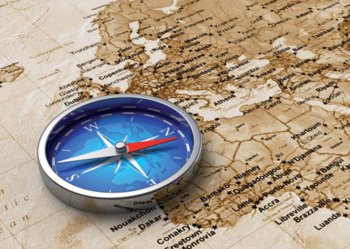
Travelling according to Javier Reverte
Travel is not a sport designed for those who are sure of what they are, what they want, and where they are going (…) It is designed for those that sense that finding is not the important part of travelling and that fulfilling a dream can be, above all, to stumble upon adventure. It is true that we always come back, but one must not travel with the intention of doing so.



